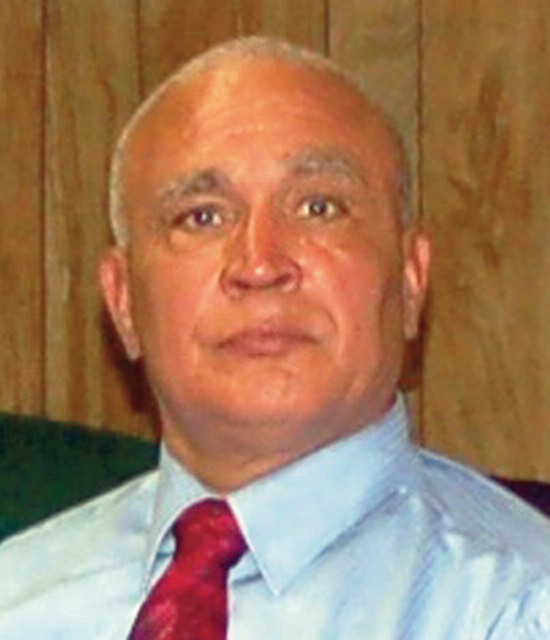From all walks of life and in different dialects, Elmhurst residents gave city officials an earful during a Manhattan public hearing last Thursday, Nov. 13, on a plan to permanently establish the former Pan American Hotel as a homeless shelter.

Since June, the Department of Homeless Services (DHS) has housed families with children at the hotel located at 79-00 Queens Blvd., on a temporary and emergency basis. Recently, the DHS entered into a proposed agreement with the nonprofit Samaritan Village to permanentize the operation.
Under the contract, the city would pay Samaritan Village- which, with the DHS, also plans to create a homeless shelter at a former Glendale factory-just over $42.4 million for a five-year period. The agreement also includes a four-year renewal option that could keep the Pan Am shelter operating through June 2023.
All but three of the 24 speakers at the public hearing- including several whose remarks were translated from Mandarin- denounced the Pan Am proposal, charging the shelter does more harm than good for the homeless individuals housed there as well as the surrounding community.

Calvin Pitter of the DHS was there to hear it all and said he would take the comments back to the agency; he did not offer any formal responses on the agency’s behalf.
Things turned testy toward the end of the session when Steve Rothman of Samaritan Village read a statement claiming the nonprofit works “in all cases” with the community regarding shelter operations. He also noted the charity would institute and enforce rules and regulations at the site, including a strict curfew.
Rothman’s statements were greeted with jeers and other statements of displeasure that opponents voiced.
Lacking basic needs
State Sen. Toby Ann Stavisky, the lone elected official who spoke at the hearing, said the decision on permanentizing the Pan Am shelter should “be delayed until issues are resolved and a coherent plan is laid out that addresses all safety and fiscal concerns.”
“It is our responsibility that they (homeless persons) are housed in facilities that are suitable, comfortable and, above all, safe,” Stavisky said. “I do not know if the Pan Am Hotel meets these basic standards.”
None of the rooms, she pointed out, have a working kitchen; the city generally requires that each unit in a homeless shelter have a kitchen and a bathroom. Stavisky noted that a former DHS official, Lisa Black, claimed the agency ruled out using the Pan Am since the individual rooms did not have kitchens. Nevertheless, the DHS began housing families there weeks after that statement.
John Schaefer of the group Elmhurst United blasted current conditions at the Pan Am Hotel, showing pictures of garbage bags stacked against a fence. Reportedly, the refuse had been sitting there for 11 days; by law, garbage must be removed on a regular and daily basis.
“Samaritan Village is in violation of state and local law and should not be allowed to continue to manage the shelter on Queens Boulevard,” he said. “The trash is not in containers with stacks rivaling the last Sanitation [workers] strike. If Samaritan Village is blatantly breaking the law, what’s going on behind closed doors? This lawbreaker doesn’t deserve a signed contract.”
Regina Kwiat, who claimed she spoke to a number of residents staying at the Pan Am, decried conditions there, claiming that Samaritan Village hasn’t kept up appearances and neglected to provide proper food, as required under the contract because families do not have their own kitchens.
“Samaritan Village has not been helpful to the neighborhood. They lie all the time. They’re not helping the residents,” said Regina Kwiat, a 60-year Elmhurst resident, who said she learned-in speaking with shelter residents-the organization does little to assist them, including providing small TV dinners in lieu of healthy meals.”
Kwiat noted that, after raising at a previous meeting concerns about men drinking behind the shelter, Samaritan Village responded by putting up a fence “so I don’t see them drinking.”
“Forty-two million dollars we’re giving these people, and for what?” she asked. “Does DHS know how many social workers they have? Have any of you gone there to talk with the residents?”
No open dialogue
Many speakers charged the DHS and Samaritan Village allegedly kept the community in the dark regarding its plans for the Pan Am. Specifically, they claimed the DHS only provided public notice that it would use the hotel as a shelter hours before families began moving in.
“I’m outraged and disgusted that Mayor de Blasio and DHS continue to warehouse homeless men, women and children in forprofit homeless shelters in the name of compassion in Elmhurst, in Astoria, in Far Rockaway and in the other boroughs-all at an exorbitant expense to taxpayers,” said Jennifer Chu of Elmhurst United. “But what is unacceptable is the way that Mayor de Blasio and DHS goes about it-secretly opening these shelters under the guise of an emergency, but then converting these emergency shelters into permanent ones.”
“The utter lack of open dialogue, explanation and accountability when such decisions are made is not contingent with how our city should run,” said Christina Long, representing Community Board 4 District Manager Christian Cassagnol, who read into the record an Oct. 29 letter the board sent to DHS Commissioner Gilbert Taylor. “Note that we are not against the housing of the homeless, as we understand our citizens’ legal rights. What we are against is the process which condones negligence, and a ‘we will do it whether you like it or not’ attitude that has been so blatantly expressed by the agency.”
Phil Wong expounded on that point, noting that-in viewing the proposed contract-a number of components were missing from it, including an operating plan, an independent living plan, a list of officers for Samaritan Village, staff resumes and liability coverage.
“Without these attachments, the public would not know the exact details of how Samaritan Village would operate this site as a homeless shelter,” he said.
Who benefits?
Others charged the city’s policy of “warehousing” hundreds of homeless people in large facilities is inhumane and inefficient. Some speakers suggested homeless residents should instead receive increased rental subsidies, enabling them to live independently in the communities they choose.
Howard Moskowitz stated the city presently pays $3,700 per month per family to homeless shelter operators, nearly double the current market rate rents for apartments in Elmhurst and other Queens communities.
Linda Lam, along with several other speakers, charged the plan amounted to a profiteering scheme benefitting shelter operators and property owners at the expense of homeless persons.
“So who actually benefits if DHS signs the contract?” Lam said. “Obviously, the landlord as they would be overnight millionaires. Ironic, isn’t it, when the city’s intention of helping the poor ends up making the rich even richer.”
“And who suffers? It’s the homeless resident-the very same people DHS claims it intends to serve,” she added. “They are crammed into small rooms, living closely with other homeless residents they do not know … They live in fear of each other.”
Millie Wong also mentioned State Comptroller Thomas DiNapoli’s audit of Samaritan Village earlier this year, which accused the nonprofit of misusing about $1 million in state funds for other purposes, including employee bonuses and day trips unrelated to the services it provides.
“If someone misappropriates a million dollars, should they even get the opportunity to bid on a city contract? I say no,” added Robert Valdes Clausell, treasurer of the Newtown Civic Association.
Bill Kregler, speaking on behalf of the Community Education Council of School District 24, charged that the community was “lied to right off the bat,” adding there are potential conflicts of interest between the city and Samaritan Village. He pointed out that Tino Hernandez, Samaritan Village’s executive vice president, previously held high-ranking posts at other city agencies, including the New York City Housing Authority.
He then claimed there would be “pushback” if the shelter proposal were approved, noting other city agencies would likely begin inspecting local schools- many of which are well above their stated capacity-and temporarily close them if certain unsafe violations are found.
Kregler said CEC 24 is prepared to “systematically … notify various agencies of concern to do thorough and complete inspections of our schools.”
“We’re going to look for code violations … and I assure you, ladies and gentlemen, we will find them there,” Kregler added. “It’s not a threat; it’s going to be a promise. Shelters are no good; this is a money-making opportunity. Do not portray Samaritan Village as a nonprofit community organization to help the community. It’s a business; that’s what it is.”
However, two local residents, including Jim Galloway of Lefrak City, encouraged residents to keep an open mind on the shelter, adding that the needs of the city’s homeless population must be adequately addressed.

































